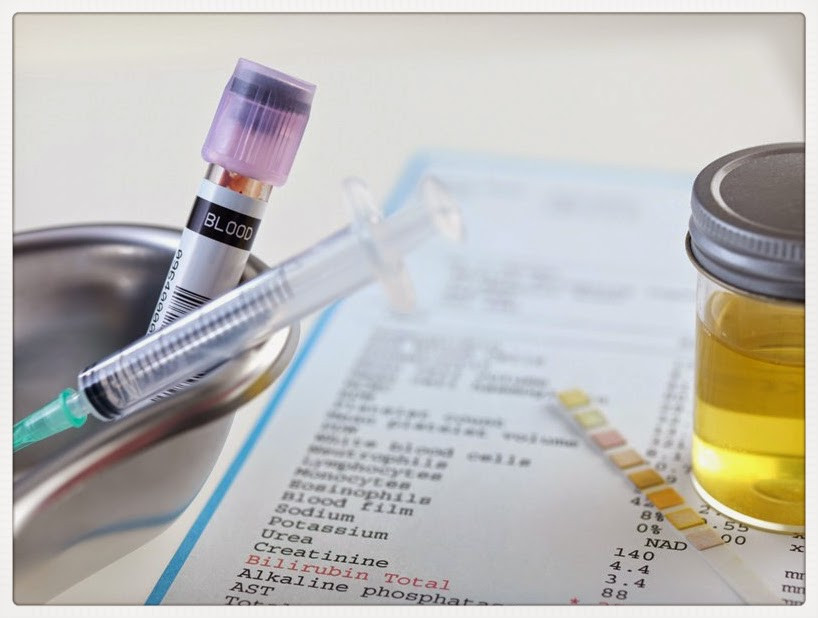Definition
The urine potassium test is a diagnostic procedure used to measure the potassium levels in urine. Potassium is an essential electrolyte, a mineral with an electrical charge, that helps the body and its cells function properly. Potassium plays a vital role in metabolism and helps maintain the balance of fluids and electrolytes in the body.
The urine potassium test differs from the blood potassium test because potassium levels in the urine can vary from those in the blood. As a result, doctors often recommend performing both tests for a more complete assessment.
For instance, if you are on medication for diabetes or have heart-related issues, you may have high blood potassium levels but low urine potassium levels. Conversely, if you have kidney disease, diarrhea, or excessive sweating, your serum potassium levels may be low, while your urine potassium levels may increase.
A urine potassium test is usually requested by a doctor if you are experiencing symptoms that could indicate either:
-
High potassium levels (hyperkalemia), with symptoms such as:
-
Nausea
-
Fatigue
-
Muscle weakness
-
Irregular heartbeat
-
-
Low potassium levels (hypokalemia), with symptoms including:
-
Weakness and fatigue
-
Muscle cramps or tension
-
Difficulty with bowel movements
-
Indication
The urine potassium test is commonly performed to confirm certain diagnoses, such as:
-
Hyperkalemia or hypokalemia
-
Kidney disease
-
Adrenal gland disorders, such as hypoaldosteronism and Conn’s syndrome
Additionally, your doctor may recommend a urine potassium test to:
-
Monitor potassium levels if you experience vomiting or diarrhea over a period of hours or days
-
Identify signs of dehydration
-
Confirm the results of a serum potassium test
-
Monitor for possible side effects from medication use
Contraindication
There are no contraindications or conditions that prevent an individual from undergoing this test.
Preparation Before the Test
No special preparation is needed before performing a urine potassium test. The test can be done without the need for fasting. However, it is recommended to consult a doctor before undergoing the test, as certain medical conditions or medications might interfere with the accuracy of the results. These factors could cause the test results not to reflect your actual health condition.
Some medications that may affect the urine potassium test results include:
-
Corticosteroids
-
NSAIDs (Nonsteroidal anti-inflammatory drugs)
-
Potassium supplements
-
Diuretics
-
Antibiotics
Test Procedure
There are two methods for conducting a urine potassium test: the random urine test and the 24-hour urine test. The doctor will determine which method to use based on the patient’s condition or diagnosis.
For the random urine test, you will be asked to urinate into a special container. Prior to collecting the sample, the healthcare provider will provide instructions on how to properly collect and store your urine sample. Once collected, the sample can be handed over to the healthcare professional for testing.
For the 24-hour urine test, you will be instructed to collect all of your urine in a special container over a 24-hour period. After the 24 hours, you will submit the collected sample for testing.
Here are the steps for collecting a urine sample:
-
Thoroughly wash your hands.
-
Clean the genital area with a cleaning tissue provided by the healthcare provider or doctor.
-
Collect all of your urine into the provided container during urination, ensuring not to touch the inside of the container to avoid contamination.
Normal and Abnormal Values
In adults, the normal value for urine potassium is:
-
Random urine test: 20 mEq/L
-
24-hour urine test: 25-125 mEq/L
For children, the normal range for urine potassium is 10-60 mEq/L.
It is important to note that each laboratory may have slightly different reference ranges due to variations in the equipment or methods used for testing.
Results and Recommendations (Follow-up Tests)
Low Potassium Levels
If your urine potassium test results show low values (less than 20 mEq/L), you should consult a doctor. The doctor may suggest adjustments to your diet and lifestyle to promote better health, or in some cases, initiate special drug therapy or intravenous fluids to help restore your potassium levels to normal ranges. Potassium can be obtained from foods such as bananas, milk, fish, beef, chicken, and bread.
There are several conditions that can cause low urine potassium levels, including:
-
Medications such as NSAIDs, beta blockers, and lithium (used for treating mood disorders)
-
Hypoaldosteronism (a condition where the adrenal glands produce too little aldosterone hormone)
Normal Potassium Levels
If your urine potassium test results fall within the normal range, it generally indicates that you are maintaining a healthy lifestyle. To continue preventing potential health issues related to abnormal potassium levels, it is important to maintain your current habits.
High Potassium Levels
If your urine potassium test results show high values (greater than 125 mEq/L), it is important to consult a doctor. The doctor may recommend adjustments to your diet and lifestyle, or start drug therapy to help lower your potassium levels.
High urine potassium levels may suggest that the kidneys are not properly filtering potassium through urine. Possible causes of increased urine potassium include:
-
Metabolic acidosis (when acid levels in the body are abnormally high)
-
Eating disorders such as bulimia
-
Kidney disorders
-
Hypomagnesemia (low blood magnesium levels)
It is important to seek medical advice and avoid self-diagnosing in case of high potassium levels, as it may indicate a serious underlying condition.
Consult the Right Doctor
If you have abnormal urine potassium test results, adults can discuss them with a general practitioner, who will recommend further tests or begin therapy based on the appropriate diagnosis. You may also want to consult an internist or a nephrologist to address concerns related to urine potassium levels.
For pediatric patients, if the test results are outside the normal range, it is essential to consult with a pediatrician to ensure proper diagnosis and treatment.
For convenient access to consultations, you can download the Ai Care application from the Play Store or App Store to have a free consultation with a doctor.
Looking for more information about laboratory, radiology, and other examination results? Click here!
- dr Nadia Opmalina
What is a Urine Kalium Test. (2022). Retrieved 22 August 2022, from https://www.webmd.com/urinary-incontinence-oab/urine-potassium-test
Potassium. (2021). Retrieved 22 August 2022, from https://www.testing.com/tests/potassium/
Potassium Urine Test. (2021). Retrieved 22 August 2022, from https://medlineplus.gov/ency/article/003600.htm#:~:text=Normal%20Results&text=For%20adults%2C%20normal%20urine%20potassium,of%20potassium%20in%20your%20body.
Potassium Urine Test. (2021). Retrieved 22 August 2022, from https://www.ucsfhealth.org/medical-tests/potassium-urine-test
Potassium Urine Test. (2020). Retrieved 22 August 2022, from https://www.healthline.com/health/potassium-urine











